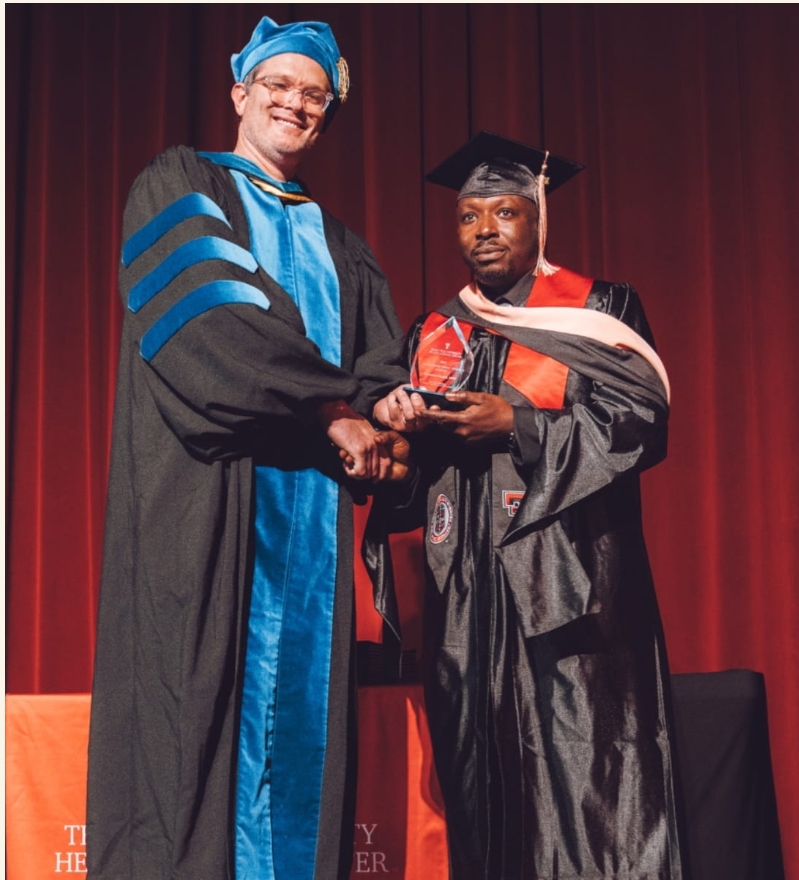When Dr. Oluwatobi Oladeji began his medical career in Nigeria, he quickly discovered a harsh reality: far too many lives were lost, not because of incurable diseases, but because of barriers to care. Families traveled hours, sometimes days for medical attention, and many patients never made it to a hospital.

“It was painful to watch preventable deaths happen simply because access to care was out of reach,” Dr. Oladeji recalls. Those experiences, he says, shaped his life-long mission: tackling health disparities at both community and global levels.
Building Solutions in Nigeria
Advertisement

To order your copy, send a WhatsApp message to +1 317 665 2180
After completing his medical training at Obafemi Awolowo University (OAU), Dr. Oluwatobi Oladeji joined the Nigeria Police Medical Service (NPMS), where he quickly established himself as a public health innovator.
When COVID-19 threatened frontline responders, Dr. Oladeji designed a screening algorithm that helped officers identify risk early and safely continue operations.
He also partnered with the Police Action Committee on AIDS (PACA) to study how officer migration contributed to the spread of HIV/AIDS and other infections, research that reshaped prevention policies for police officers nationwide. He later co-developed the Police Counseling Support Unit, the first of its kind, ensuring mental health support became part of officer wellness.
Beyond the force, he organized medical outreaches in underserved regions, bringing preventive screenings and education to communities often left behind.

Transition to U.S. Public Health

That commitment eventually brought him to Texas Tech University in the United States, where he earned a Master’s in Population and Public Health. His academic excellence was recognized early with both a Presidential Scholarship and a Rural Health Scholarship, and in May, 2025 he was honored with the university’s Outstanding Public Health Student Award for research, community service and leadership.
At Texas Tech, his research began to attract national attention, his studies have been published in international journals, including the Journal of Cardiac Failure, with additional manuscripts under review at the American Journal of Perinatology and BMC Pregnancy and Childbirth (Springer Nature).
Collectively, these works examine racial and ethnic disparities in maternal health outcomes, the unique risks facing rural populations, and the barriers underserved communities encounter in accessing timely prenatal care.
Together, they underscore both the clinical and structural drivers of health inequities in the United States.
National Impact: NIH-Funded Maternal Health Study
Dr. Oladeji’s most recent work has been with the National Heart, Lung, and Blood Institute (NHLBI) at the National Institutes of Health (NIH) funded the Verifying and Implementing evidence-Based Programs for Addressing Needed Transformations in Maternal Outcomes, Measures, and Support (VIBRANT MOMS) project, an initiative targeting maternal health disparities in rural Texas panhandle.
He played a central role in shaping the research, from fieldwork to data analysis, ensuring that the voices of rural women were captured in the study. His contributions led to two abstracts on maternal health disparities in the Texas Panhandle where he earned an Oral Presentation Award at the Amarillo Research Symposium, while three more of his studies were accepted for oral and poster presentation at the upcoming American Public Health Association (APHA) Conference in Washington, D.C.—one of the largest public health gatherings in the world.
These projects, which address topics ranging from preeclampsia screening and prevention and contributors to maternal health disparities in rural Texas to global salt consumption and cardiovascular risk, highlight not only his scientific rigor but also his growing influence in shaping conversations around maternal and community health.

Global Lessons, Local Impact
Colleagues describe Dr. Oladeji’s perspective—bridging frontline medicine in Nigeria with advanced research in the U.S.—as both rare and urgently needed. “His work doesn’t stop at identifying problems. He brings practical, evidence-based solutions that are reshaping how we think about maternal health in rural America,” one colleague said.
As the U.S. continues to face widening maternal health disparities, particularly among rural and minority populations, Dr. Oladeji’s career illustrates how international expertise can drive meaningful, local impact.“Whether in a rural Nigerian village or the Texas Panhandle, my mission has always been the same,” Dr. Oladeji said.
“To break down barriers so that geography or circumstance never decides who lives and who dies.”


















